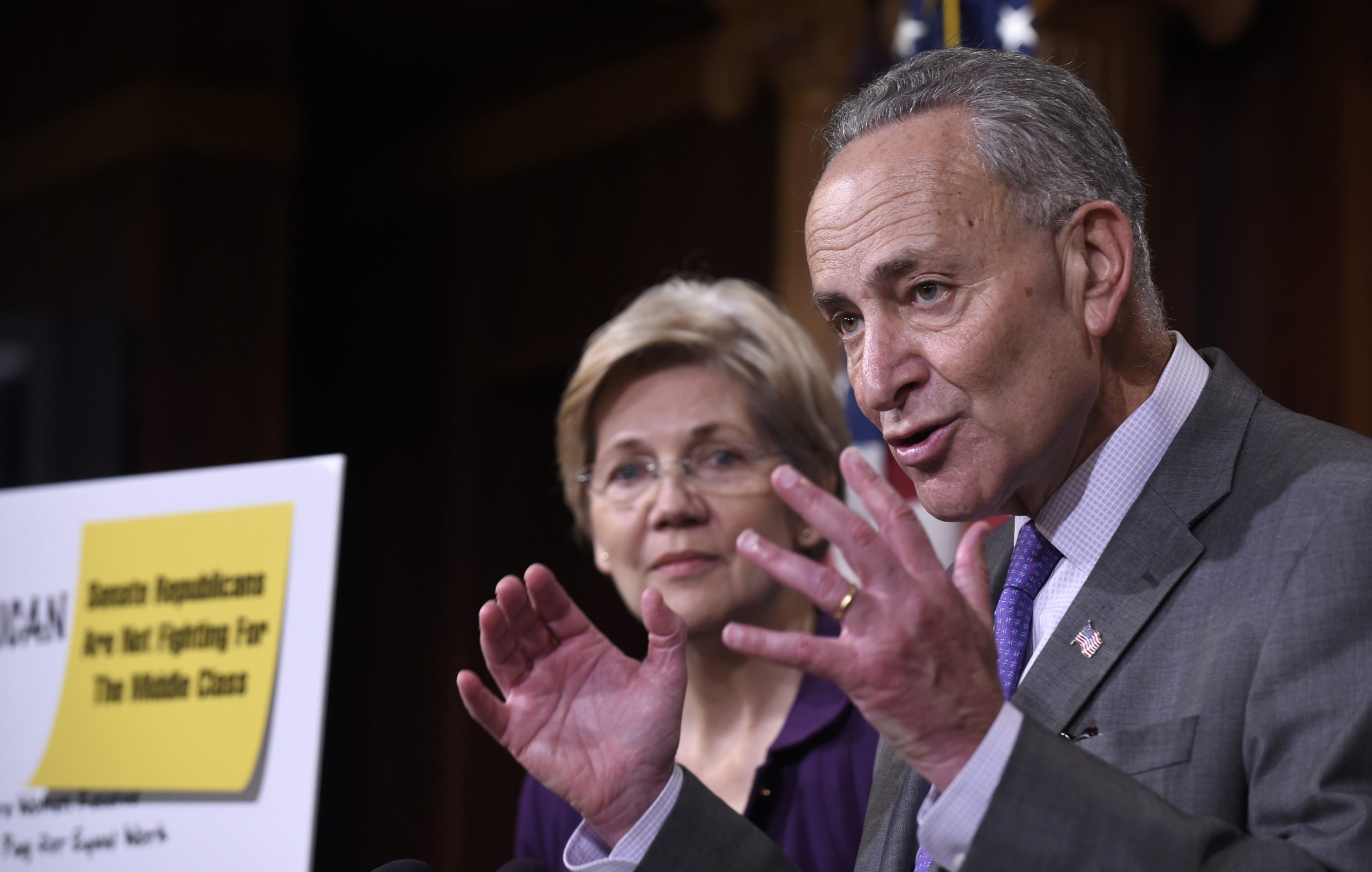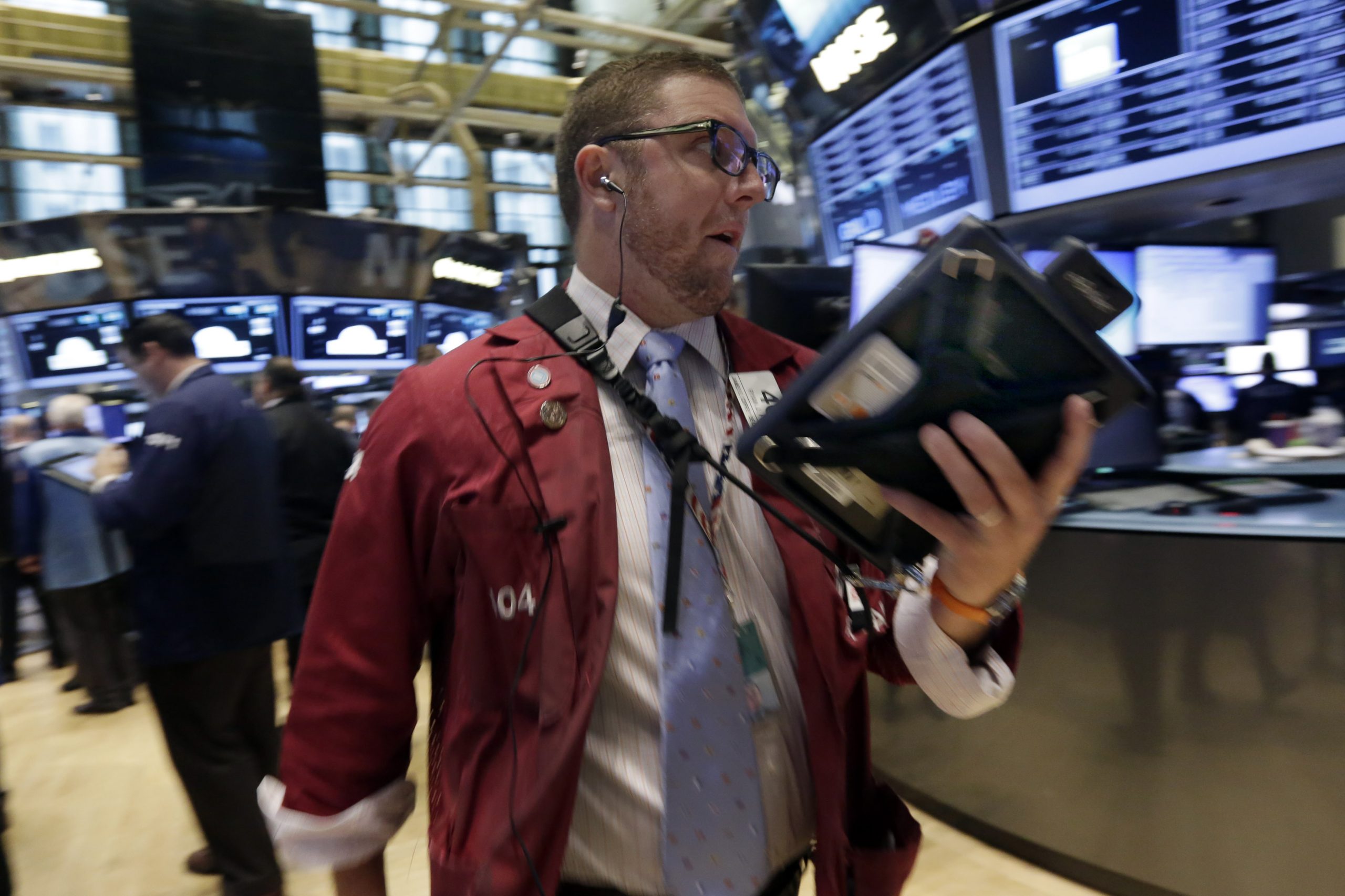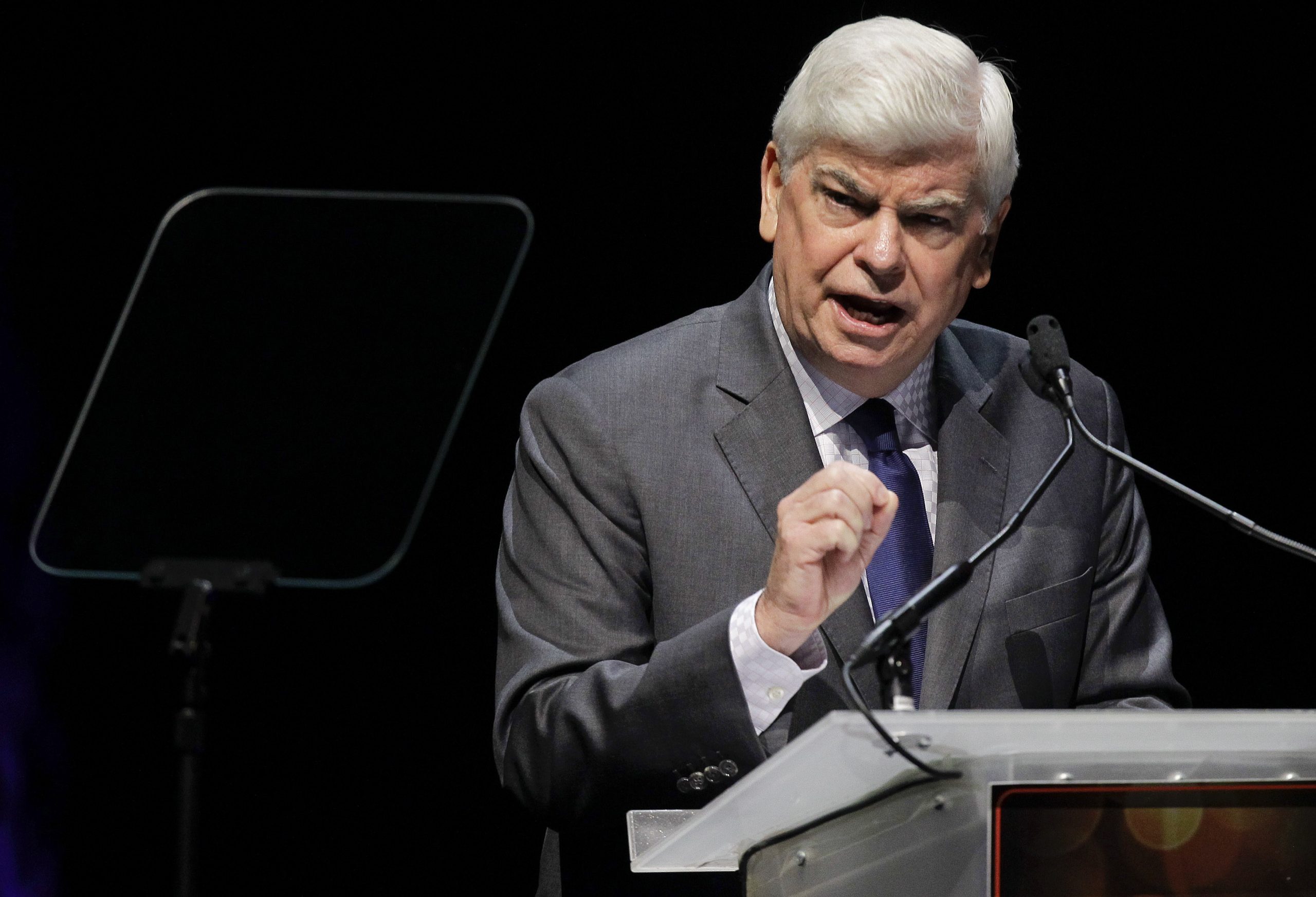Rob Nichols has been cramming in “as much travel as humanly possible” to meet bankers all over the U.S.
He spoke with the Washington Examiner after completing a West Coast swing to meet with state bank associations in San Francisco, Portland and Seattle, his fourth trip in just two-plus weeks as president and CEO of the American Bankers Association.
With that trip over, Nichols said he was trying to meet as many of the 350 people working at the association’s headquarters in Washington as he could before heading out on the next trip.
As head of the biggest financial service trade association, Nichols has a lot of people to meet. He previously led the Financial Services Forum, a group of CEOs of 18 of the biggest financial institutions in the U.S. Now he is responsible for banks of different sizes all across the country.
He joins the American Bankers Association as Wall Street struggles to rehabilitate its image after the financial crisis and faces the rise of an energized populist movement on the Left. While suspicion over banks’ influence is rampant in Congress, Nichols is tasked with getting results for the industry.
That means trying to ease the regulatory burdens imposed on banks by the response to the crisis. Bankers argue that some of the new rules in the 2010 Dodd-Frank financial reform law are overly restrictive or carry unintended consequences. Those include new regulations on what kinds of loans bankers can make, how often they are examined and much more.
Nichols discussed his outlook and agenda with the Examiner.
Examiner: Banks reported record profits in the second quarter, according to the Federal Deposit Insurance Corporation. Are you walking into an easy job?
Nichols: I would say there are pronounced and acute regulatory pressures on our nation’s banks. They face a regulatory apparatus never before seen, post-financial crisis.
We need to make sure that the regulation is tailored. We need to make sure the regulation is right-sized for banks of all sizes. It’s extremely important to do that because, for our economy to grow more rigorously, we need banks to play their critically important role in amassing the aggregate savings of the American people and deploying it in the form of risk capital.
The work is critically important, and it will help all of our financial circumstances if we get it right.
Despite the recent FDIC numbers, there are a lot of pressures negatively impacting the banking sector that we need to address. Not just from the regulatory side, but there are issues of our nation’s demography and other factors that are critically important to focus on.
Examiner: Staying with the regulatory side right now, what’s at the top of your agenda?
Nichols: Obviously, getting regulation right for the smaller banks is critically important. Seeking examination relief is certainly important. Ensuring that our mortgage rules are properly calibrated is obviously important. There’s a whole host of things that I think make sense. Congress is addressing many of these.
But just as a general observation, we need our nation’s banks to have regulation that is properly tailored and right-sized. That is something that Congress is obviously thinking about, I think rightly. And we look forward to working with them on that.

While suspicion over banks’ influence is rampant in Congress, Nichols is tasked with getting results for the industry. (AP Photo)
Examiner: You have the presidential campaign heating up right now, and you see some candidates really running against banks. How do you message and how do you pursue your agenda when these populist messages are being broadcast?
Nichols: To people running for office at any level, I think I would want to remind them that we have a capital market that is the envy of the globe. And part of what makes it unique and special is that we have banks of all sizes, shapes, makes, models playing their role. Each plays a critically important role serving clients and communities in the financial ecosystem.
Again, it is the envy of the globe and we should not take that for granted. While bank-bashing may be in fashion, I would respectfully offer that it is misguided, and in fact our nation’s financial circumstances will be strengthened with a robust banking sector.
Examiner: Speaking of different sizes, you’re coming from a background where you represented large institutions. Now you have small institutions, as well. How does that change your role?
Nichols: Listen, I served many years in government: In the White House, in the House, the Senate, at the Treasury. In those positions, we really focused on financial and economic policies to help our economy grow. And there’s a lot of analogies to this position here. We didn’t focus on one set of one institutions, we focused on a set of policies. I think that’s directly applicable.
I’d also observe that the larger institutions, as a result of scale, are able to absorb some of the body blows associated with the policy response following the financial crisis. I’d offer that a lot of the smaller banks cannot.
So at the forum we represented some of the larger financial institutions. At the ABA we represent banks of all sizes, and I think there’s actually more consistency there than inconsistency.
Examiner: To follow up on that point, what are the prospects for some kind of small bank and community bank regulatory relief out of Congress in the near term?
Nichols: Obviously, 2016 is a year when there’s not — in a presidential election year, there’s probably not an expectation for a lot of legislative activity. So in ’15 we’re going to push very aggressively, very rigorously for regulatory reform. It’s hard to determine exactly how that will play out. We will keep our pedal to the metal throughout the next several months.
What’s encouraging, what’s positive, is there are a lot of Republicans and Democrats alike in the House and the Senate who are openly supportive of regulatory reform, particularly for the smaller banks. So we’re going to engage in a dialogue with each and every one of those elected officials to try to construct a set of circumstances where we can get something done.
How exactly it plays out, it’s a little hard to say here in September, but there are encouraging aspects to that conversation, in large part because, again, a lot of this is very bipartisan. I think there’s a recognition on the part of many in Congress that some of the policy response has ensnared smaller banks in a way that was not intended and that there’s a lot of individuals — again, in both the House and the Senate, Republicans and Democrats alike — who want to right-size that, and calibrate that properly.
So exactly how we end the year is unclear at this second, but we’ll be a very active, rigorous participant in that conversation.

Wall Street is struggling to rehabilitate its image after the financial crisis and faces the rise of an energized populist movement on the Left. (AP Photo)
Examiner: When you’re traveling to places away from D.C., what do you tell bankers there about the climate in D.C., and how it compares to times past? How do you explain to them what’s going on here politically?
Nichols: Obviously there’s a little bit of partisan discord, obviously there’s a little bit of polarization in Congress today. That’s not a hidden secret. And so you need to break through that, and that’s challenging. We’re in the context of a presidential year, trying to break through that is also challenging.
However, there’s an understanding that we need to rise above those challenges to get financial regulatory policy right. Again because it will help all Americans if we can have that properly addressed.
So when I travel about, I try to give a very straight and honest assessment of what’s happening in Washington. Not just from a tactical standpoint, in terms of what’s happening in the Senate, but really trying to provide some clarity, some understanding, and some insight and transparency into how policymakers are viewing these issues: how policymakers understand financial regulation, what motivates them to fix it.
And one thing I’d add is, I think it’s really important when banking CEOs come to D.C., they don’t talk about how a particular piece of legislation or regulation hurts their bank, but rather how that particular piece of legislation or regulation helps or hurts their clients, their communities, their customers and ultimately the constituents of the elected officials. Because that really resonates.
Examiner: To return to something that you mentioned briefly, where are the biggest challenges for banks right now? Is it Washington? Or is it from outside: Technological change, demographic change or something else?

Former Sen. Chris Dodd, D-Conn., was behind the 2010 Dodd-Frank financial reform law. (AP Photo)
Nichols: I’d offer two pieces. Number one is the acute regulatory pressures probably never before seen by our nation’s banks post-financial crisis.
And number two, I would add in the second category some of these demographic changes. You have 84 million Americans who are in the “millennial” generation. These are individuals who are wary of banks, and of greater concern, in large and growing numbers view that they don’t need a bank. That’s very concerning. We need to debunk that thinking, and explain and share why they do need a bank, and not just a payment system or app.
That issue is really important that we reach out to that community properly. I would note that they’ve just overtaken the boomers as the largest aspect of our nation’s demography, so that’s huge. Secondly, that this issue of the convergence of technology and banking is really important. That’s rapidly accelerating. We need to work with the technology sector in a thoughtful way and not have our future direction dictated to us. That would be unfortunate. And so we need to work very closely with the technology sector to get that relationship right.
And one last thing I would add, apart from your fundamental question, but I feel very strongly about this: This issue of unity, and ensuring that banks of all sizes work very closely together. We will be more effective if we are together. We will have more influence and more clout by working together.
So I know Dodd-Frank created these thresholds which could have the consequence of driving banks apart, but we will be stronger together. So that’s going to be a huge mission of mine here, a very important mission. And that is to try to have banks of all sizes, shapes, makes and models working together in harmony in Washington. And again, by doing so we’ll have more influence, more clout, and be able to advance our policy desires together and then, said another way, help stop really bad things from coming our way.
This article appears in the Sept. 14 edition of the Washington Examiner magazine.
